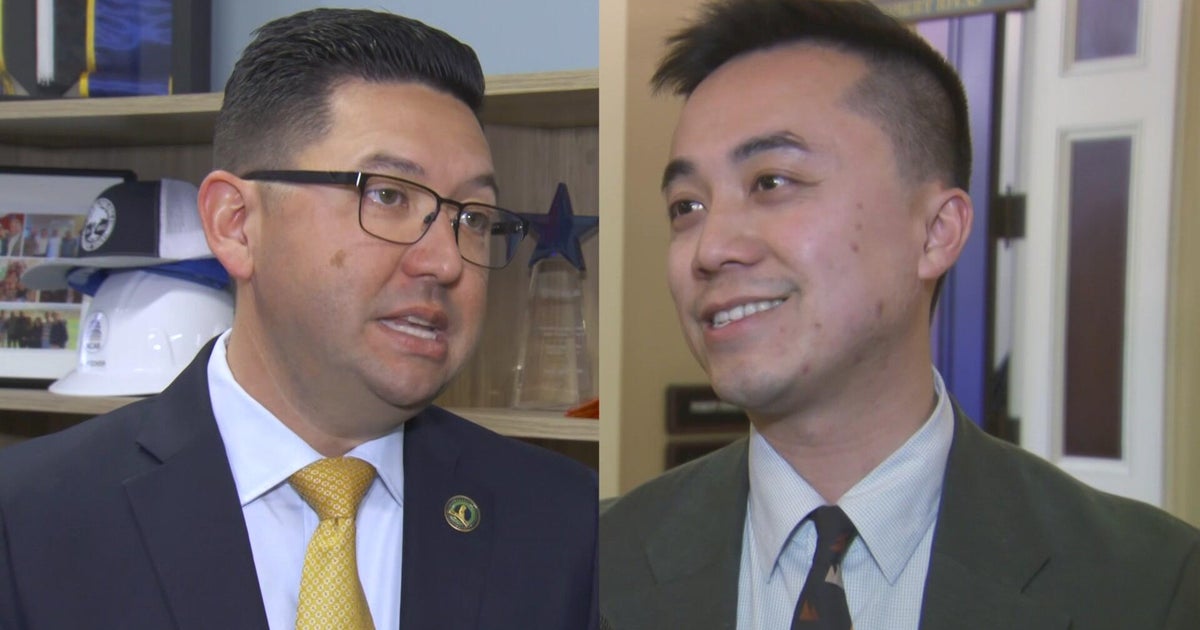Here are the states vying to hold the first presidential Democratic primary contests in 2024
Iowa and New Hampshire have kicked off the presidential nominating process for decades, but Democrats are looking to shake up the early state order ahead of the 2024 presidential election.
Twenty Democratic parties sent letters indicating they plan to bid to change that order, according to a DNC official, potentially upending the 2024 contests.
State parties that want to be considered for the coveted first-in-the-nation early primary or caucus spots had to submit a letter of intent to the Democratic National Committee by last Friday. All four of the states that have held the early contests since 2008 – Iowa, Nevada, New Hampshire and South Carolina – have indicated they'll apply to stay in the early window.
The other states that submitted letters of intent are Colorado, Connecticut, Delaware, Georgia, Illinois, Maryland, Michigan, Minnesota, Nebraska, New Jersey, New York, Oklahoma, Texas and Washington. Puerto Rico and Democrats Abroad also submitted letters.
The DNC's Rules and Bylaws Committee approved a plan in April for selecting up to five states to vote in that early window.
States' applications are due by June 3 and some states will be asked to give presentations to the DNC's Rules and Bylaws Committee later that month. A decision on which states will be chosen for the early window is expected to come at meetings scheduled for July 8 and 9.
The committee will consider three main criteria for selecting the early states in 2024: diversity, competitiveness and feasibility. Diversity includes considering racial, ethnic, geographic and economic diversity, as well as union representation.
One factor will consider how competitive a state is during the general election. The feasibility requirements will weigh whether a state is able to move its primary or caucus into the early window, a task that could be difficult for states where Republicans control the legislature, and whether they can run a "fair, transparent and inclusive nominating process."
Iowa is fighting to keep its first-in-the-nation status, following the chaotic caucuses in 2020, when it took days to release results due to an issue with reporting software. Some Democrats have said that Iowa's lack of diversity and competitiveness during recent general elections should also cost the state its spot.
The Iowa Democratic Party submitted its letter of intent on Wednesday afternoon, pledging that there will be changes to the caucus system.
"We recognize that caucuses need to change with the times," Iowa Democratic Party Chair Ross Wilburn said in the party's letter of intent. "We intend to simplify the process so that it is easy to understand and offers more options for participation. Such planned changes can only serve to expand an already-engaged electorate."
New Hampshire, which is required to hold the first primary by state law, told the DNC earlier in April that it is going to apply to stay in the early window.
"The Granite State has kicked off the presidential nominating contest since 1920, and it has produced successful nominees for both parties," New Hampshire Democratic Party chair Ray Buckley said in his letter of intent. "I am confident that proud tradition of nominating presidents will continue in 2024 and beyond."
But at least one early state is hoping to move up in the order. Nevada Democrats' letter of intent said they're aiming to be first — to "lead our nation's next presidential nominating process in 2024."
"We are a majority-minority state offering a mix of urban and rural voters, accessible communities and media markets, strong union representation, and a growing economy," Nevada Democratic Party chair Judith Whitmer said in her letter. "Now is the time to move our battleground state to the front of the nominating calendar for future presidential election cycles."
Nevada's Democratic Governor, Steve Sisolak, signed a law in 2021 moving Nevada's primary to the first Tuesday in February. Based on that law, New Hampshire could still go ahead of Nevada if it were to hold a primary in late January.
South Carolina, which propelled President Joe Biden to the Democratic nomination in 2020, is also vying to stay in the early window. DNC chair Jaime Harrison, a former South Carolina Democratic Party chair, told CBS News in March that "South Carolina likes being where it is."
While the Democrats are weighing significant changes to their early primary calendar, the Republican calendar will remain the same as it was in 2020, meaning Iowa Republicans will hold the first contest for the GOP.
That decision by Republicans complicates some of the decisions for Democrats, who will have to consider whether states would actually be able to move their primaries ahead of Super Tuesday. States with Republican-controlled legislatures or with Republican governors may not be able to move their state-run primaries into the early window because Republicans will be keeping their early states the same.





